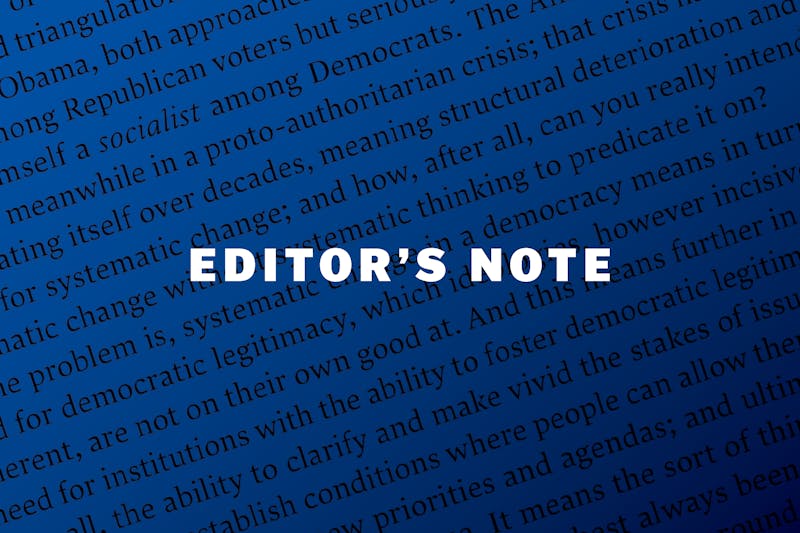
There’s something about a first national election of the Trump presidency that focuses the mind. For now, at least, anxious rhetoric about contemporary America’s proximity to Weimar Germany and doom-laden idioms of resistance have cleared space on the left for a provisional hope about what the Democratic Party and its candidates can yet do with the good, old-fashioned, still-cranking gears of electoral politics.
It’s a question not only with many possible answers but with very different kinds of answer, depending on the horizon we’re looking at. How the Democrats can take back Congress is an issue that ranges from tactics to strategy. What they might succeed at doing if they take back Congress goes from strategy to vision. But then, what the Democratic Party might actually become, so it could sustainably lead the United States out of the toxic bog that’s accreted around a morally collapsed Republican Party and toward something new—that’s a question that would seem to extend from vision to ... something beyond vision.
Maybe that something is what we’re accustomed in the modern world to calling ideology—understanding ideologies as clear constellations of social, political, and economic ideas we can look to, to order and govern how we think about order and governance. It’s intuitive that the idea of ideology, in this sense, would be in ascendance on the left these days. After decades of Democratic politics oriented predominantly around the calculated triangulations of the Clintons or the morally impassioned centrism of Obama, both approaches were not only crushed by populist reaction among Republican voters but seriously challenged by someone calling himself a socialist among Democrats. The American political system is meanwhile in a proto-authoritarian crisis; that crisis has been precipitating itself over decades, meaning structural deterioration and a need for systematic change; and how, after all, can you really intend systematic change without systematic thinking to predicate it on?
The problem is, systematic change in a democracy means in turn a need for democratic legitimacy, which ideologies, however incisive or coherent, are not on their own good at. And this means further in turn a need for institutions with the ability to foster democratic legitimacy—above all, the ability to clarify and make vivid the stakes of issues and arguments; to establish conditions where people can allow themselves to be persuaded about new priorities and agendas; and ultimately to forge new kinds of common sense. It means the sort of thing strong pro-democratic magazines have at their best always been good at—modeling powerful citizenship to help the society around them meet the challenge of a new time.